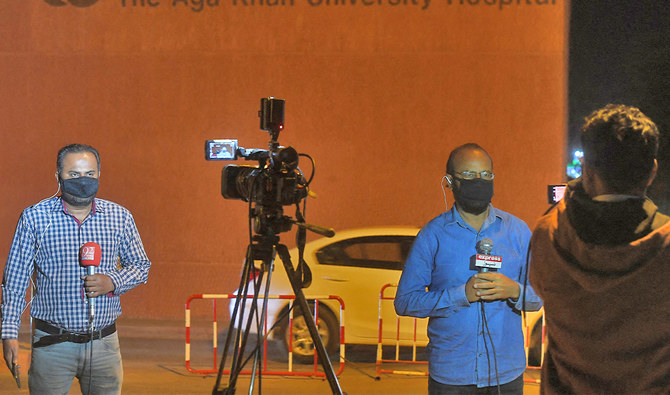KARACHI: Over 15 months after Pakistan’s Sindh province passed a landmark law for the protection of journalists, the provincial government on Wednesday approved setting up a high-powered commission that will serve as a court to receive complaints and also proactively pursue cases of attacks on media workers.
The Sindh Protection of Journalists and Other Media Practitioners Bill 2021 became law in July 31, 2021. Among its provisions, the bill calls for the establishment of a “Commission for Protection of Journalists and Other Media Workers.’
The commission is to be headed by a former judge as its chairman and will comprise officials from the provincial information, home, law and human rights departments as well as representative of journalists, editors and employers’ unions, lawyers and the Human Rights Commission of Pakistan. Two members of the provincial assembly will also be part of the body.
Pakistan, where journalists face frequent attacks, acts of intimidation and harassment from both state and non-state actors and political groups, registered a steep decline of 12 points in the World Press Freedom Index 2022, dropping to 157 from 145 out of 180 nations in 2021. According to a report by the Freedom Network of Pakistan, 86 attacks were carried out against journalists across the country in the last one year.
“Sindh Cabinet has approved the establishment of the Commission for the Protection of Journalists & Other Media Practitioners. Justice Rasheed Rizvi will serve as its 1st Chairperson,” Sindh government spokesperson Murtaza Wahab said on Twitter.
According to the law, the commission will look into complaints filed “in respect of acts of harassment, sexual harassment, violence, and threats of violence is committed against a journalist or media practitioner”, whether perpetrated by “any person or groups of persons or public or private institution or authority.”
The commission, which will exercise the powers of a civil court, will also be able to take suo moto notice of attacks on journalists and media practitioners, recommend appropriate action to the government, direct an immediate and expeditious investigation and ensure speedy trials.
“The establishment of journalist protection commission and making Justice (R) Rasheed Rizvi as chairman is a welcome decision,” Fazil Jamili, present of the Karachi Press Club, said.
Aamir Latif, assistant secretary general of the Pakistan Federal Union of Journalists (PFUJ), said journalists in Pakistan faced threats both to their lives and their jobs.
“In Sindh also, dozens of journalists have been booked in fake cases just for performing their duties. We hope the commission will change the course of life for journalists currently working under many threats,” Latif told Arab News, saying owners of media houses needed to comply with the provisions of the new law, which calls for training and job security for journalists.
















